“Don’t just criticise, create!” Interview with Gerd Morgenthaler, member of the “Network for Academic Freedom”
This is the third instalment of our new interview series called, “Don’t just criticise, create!” David Engels speaks with European artists, philosophers, priests, intellectuals, activists, and artisans who have each decided not only to lament 'the decline of the West' but also to endeavour to help reverse it. They have done this by making something new, and also perhaps something beautiful, true, and good.
David Engels: Dear Gerd, you are a professor of public law at the University of Siegen, but at the same time you are very active when it comes to discussing questions of the philosophy of history and the protection of our democratic freedom rights. In doing so, you have been particularly prominent in the field of defending academic freedom by joining the "Network for Academic Freedom". Can you introduce the readers briefly to what exactly this is about?
Gerd Morgenthaler: The Network for Academic Freedom (https://www.netzwerk-wissenschaftsfreiheit.de/) is an association of over 700 academics, initiated in 2020 and registered as a non-profit organisation. We advocate a liberal academic climate, a plural debate culture characterised by factual arguments and mutual respect, and a correspondimg institutional environment. Research and teaching should be free from the pressure of special social interests and no one should avoid research questions or contributions to debates for fear of social and professional costs. In particular, we oppose all efforts to restrict the freedom of research and teaching for political or ideological motives.
First and foremost, the Network for Academic Freedom serves to support all those who feel that their academic freedom is under attack. In addition, we analyse threats to academic freedom, expose cases of its restriction and develop counter-strategies. In the future, we also want to organise new debate formats in order to bring together as many perspectives as possible on different, especially politically controversial issues.
How would you describe the current threat to independent research analytically?
Traditionally, the German university system followed the so-called Humboldtian ideal of "research in solitude and freedom". This meant that universities should be autonomous communities that allow their members to conduct individually self-determined research and teaching, independent of societal utilitarian purposes or belief systems, communities in which an ethos of the living spirit of science is cultivated. In the meantime, this model has been undermined by tendencies that can be summarised under the keywords 'managerialism' and 'cancel culture'.
“Managerialism” refers to the approach of placing universities more and more directly at the service of business and organising them like companies. In the past two decades, for example, hierarchical models of university organisation have been introduced in the German Länder, curtailing the ability of the universities' self-governing bodies to influence university management, while opening universities to the influence of newly installed university councils that represent social interests but are not themselves subject to institutionalised control. Another trend is that researchers are increasingly being offered only temporary contracts instead of the previously customary lifetime civil servant status, which allowed them to conduct research with assurance of full personal and factual independence. In addition, the reduced financial resources force scientists to permanently acquire so-called third-party funding. This means we cannot rule out that researchers are increasingly guided by the expectations of the funders in the formulation of their research questions, the selection of their methods and the presentation of their results. Questionable dependencies may thus arise particularly in the cost-intensive natural science and medical disciplines - but not only there.
The term “Cancel Culture” refers to the atmosphere of ideological pressure that increasingly prevails at universities too. It comes not only from the outside, from the society, but above all is generated within the universities themselves. In recent decades, a steadily increasing number of university teachers have turned away from the Humboldtian ideal and towards a postmodern ideology that is at once nihilistic and decisionist. Those agenda scientists not only reject the findings and methods of the traditional scientific disciplines as sexist, racist, colonialist, etc., but also deny the very idea of objective truth. Instead, they position themselves as the champions of a quasi-religious movement that wants to put all social and state institutions at its service or "deconstruct" them. Anyone who holds a view that deviates from the given narrative and calls for adherence to established scientific standards is not infrequently personally attacked and denigrated. As a rule, there is no objective argumentation. Rather, the aim is to intimidate and silence the person in question. The Network for Academic Freedom constantly documents blatant cases of such 'Cancel Culture' on its website.
How could it happen that, without an open revolution, the (not only) German university system got into such a bind?
How the German university system could get into such a predicament without an open revolution is a good question. There have always been tendencies in history to use universities for social purposes or belief systems. Philipp Melanchthon, and later Wilhelm von Humboldt, were already resolutely opposed to this. In the current case, the massive increase in student numbers since the 1970s and the associated rapid expansion of universities has apparently provided a favourable opportunity for transformation: As is well known, in their march through the institutions, the so-called sixty-eighters concentrated on the eminently important education sector, where they pursued a strategic appointment policy in the rapid expansion of the number of university teaching posts. What is more, the permanent financial shortages in the state university system creates and reinforces the dependence on private donors. The resulting threat to the Humboldtian model could only have become effective because a large part of academics no longer sufficiently cultivate the ethos of the living spirit of science, but pay homage to a superficial positivism in methodological terms and generally underestimate or opportunistically accept the danger to the freedom of science.
It has become public knowledge that not all members of this network are of the same opinion - thank goodness, this is a matter of academic freedom, one might say. It becomes problematic, however, when within the network distancing from "controversial" thinkers is again on the agenda - what are the internal fault lines within the organisation?
The Network for Academic Freedom is, as I said, an association of more than 700 academics - i.e. strong individualists with a wide variety of academic backgrounds and political colours. How could one seriously expect everyone to be of the same opinion all the time? What unites us, however, is the conviction that academic freedom is currently under serious threat, combined with the determination to stand in solidarity with colleagues under attack.
In the relatively short time since the network was founded, we first had to define the standards of our common action. The question of what exactly is meant by “academic freedom”, by what and by whom it is threatened, and when a case is so serious that we, as the Network for Academic Freedom, have to take a public stand, has naturally led to repeated internal discussions. However, we all agree that we stand up for academic freedom in the constitutionally guaranteed sense (Art. 5 para. 3 GG) and thus follow the concept of freedom that has been coined since the Enlightenment. According to the Federal Constitutional Court, this means the protection of "processes, behaviour and decisions based on scientific autonomy in the search for knowledge, its interpretation and dissemination". This includes the free choice of questions and methodology, the self-determined practical implementation of a research project as well as the independent evaluation and dissemination of research results. The decisive factor here - and this has also been emphasised by the Court - is the unbiased search for truth and the fundamental independence of the knowledge process with the aim of generating general knowledge through the exchange of factual arguments, free from considerations of social utility and political expediency. There must be no taboo topics or forbidden theses here, just as there must be no obligation of the free individual to neutrality, balance or political correctness. The limits of academic freedom arise solely from the constitution and the laws that conform to the constitution.
As the Network for Freedom of Science and Humanities, we feel obliged to take a public stand in individual cases where freedom of science and humanities, as understood in this way, is flagrantly violated by state authorities or where there are massive attacks by private actors while the competent authorities and courts do not react quickly enough or with the necessary vigour. As an advocate of free science, the Network must not differentiate among researchers according to political or ideological criteria. We must stand up for all researchers in the same way, and the category of the "controversial" thinker cannot exist in this context. I do not see any fault lines within the organisation, only occasional differences of opinion on the limits of freedom when it comes to researchers who take up taboo subjects or advocate ideologically hostile theses. Yet I don't consider it a weakness, but a strength of the network that in such cases there is fierce internal debate. Ultimately, it is important to apply the legal standards soberly and to stand up for freedom, even if this requires courage in the face of heated public debates - including shitstorms and defamatory insinuations against the Network and its individual members. So far, I think we have held our course quite well.
In recent years, you have also been active in organising political-philosophical seminars at which well-known, but often enough so-called "controversial" thinkers from both the left and the right were invited to speak across all party lines in order to discuss openly with colleagues and students. Once this even required police protection. What happened?
I experienced the most massive police protection, namely the deployment of an entire squad of about one hundred police officers, on the occasion of a philosophical lecture by Professor Dr Dieter Schönecker, a colleague from Siegen. As a convinced liberal, he had the idea in the winter semester of 2018/19 not only to have John Stuart Mill read as part of a university seminar on the topic of "freedom of opinion", but also to organise an accompanying series of lectures to offer the participants an impressive lesson in freedom of opinion in practice. To this end, he wrote to possible speakers from academia, but also from politics, who were to represent a wide swathe in the usual left-right scheme. However, when it became known that he had also invited the "controversial" SPD member Thilo Sarrazin and the AfD politician Marc Jongen, almost all the other planned speakers cancelled. Then there were violent protests at the University of Siegen against the supposedly politically one-sided, "right-wing" event. The AStA (students' council) called on the university administration to prevent the lecture series from taking place, whereupon the responsible dean forbade Mr Schönecker to use his departmental funds to finance expenses and the rectorate published a statement in which it clearly dissociated itself from the event. When I heard about the matter, I wrote, together with six other professors of the university, an open letter to the university administration, which was immediately published by the “Siegener Zeitung” and triggered a heated public discussion far beyond Siegen. The rectorate then felt compelled to declare that it would of course respect and protect academic freedom and ensure that the event could take place as planned. The lectures then took place under heavy protective measures. At Thilo Sarrazin's lecture, as I said, about a hundred riot police were deployed because of anonymous threats of violence, which the security authorities took very seriously.
After this incident, Dieter Schönecker and I, together with other colleagues from all over Germany who had had similar experiences with the spreading “Cancel Culture”, founded the Network for Academic Freedom. As I said, one of the tasks of this network is to develop counter-strategies and, within this framework, to organise debate formats on politically controversial issues. Last autumn, Dieter Schönecker and I invited Professor Dr. Martin Wagener, a political scientist who teaches at the “Hochschule des Bundes” in Berlin, to a seminar in conjunction with a workshop at the University of Siegen to discuss his "controversial" theses on the concept of the German people with students and external colleagues from various disciplines.
Martin Wagener, who teaches, among others, the junior civil servants of the German intelligence services in Berlin, had previously had his security classification revoked at the instigation of the Federal Office for the Protection of the Constitution, which in effect means that he is currently excluded from teaching at his university. We consider his theories on the distinction between the ethnic-culturally defined 'people' and the 'people' as formally defined by nationality to be undoubtedly in conformity with the “Basic Law” (cf. inter alia Article 116.1) and the measures taken against him to be an unconstitutional encroachment on his freedom of science.
Is this increasing squeeze on academic freedom a one-way street, or do you believe in the self-healing powers of the university enterprise?
The encroachment on academic freedom follows a trend that has been observed for a long time and has increased dramatically in recent years. But it is not a law of nature. The fact that resistance is increasingly forming at universities and organising itself effectively can be seen, for example, in the Network for Academic Freedom. Many still duck away as long as they are not affected themselves. But my own experiences, not only in connection with Dieter Schönecker's seminar, show that the fight for academic freedom has a real chance of success. At the time of the seminar, we received a surprising amount of support, both from within the university itself and from our colleagues and students as well as from outside, e.g. by letters to the editor in the “Siegener Zeitung” and by journalists who supported us with their reports and comments. Some of them also came from quite unexpected quarters. I am therefore convinced that it is worthwhile to stand firm and to defend one's own position calmly and objectively but emphatically in public.
Together with me and Max Otte, you are active in the organising committee of the "Oswald Spengler Society". How would Spengler classify the current problems in science?
Oswald Spengler would see the present problems as the inevitable consequence of the times in which we live. He famously assumed that all historical advanced civilisations, like organisms, had a measured lifespan of about 1000 years and then perished. Such a "downfall", which according to his morphology of history would have to be dated at the turn of the 20th century for the Occident, which came into being in the 9th century, was for him synonymous with the slackening and dying of the inner creative forces and the dominance of purely materialistic tendencies. In such late periods of civilisation, according to Spengler, there has always been a dismantling of culture-specific institutions and thus the atomisation of society and the emergence of "formless masses", the "victory of money over politics" and the spread of universalist-pacifist and at the same time sceptical-utilitarian ideologies. More than 100 years after he wrote them down, these predictions are confirmed in a startling way.
The motto of our interview series is: Not only criticise but also create! Could you identify with that, and if so, how?
We Europeans have known since the ancient Greeks that the fire of knowledge that Prometheus brought to the earthly will burn in us forever. Not even a raging Zeus can extinguish it. From the ancient Greeks we also know that man, as a zoon politikon, will always use his ability to think in order to creatively shape the world around him together with like-minded people. Neither tyrants nor anonymous structures can suppress this urge in the long run. We will therefore continue to fight for our freedom in the Network for Academic Freedom and beyond, and keep the flame of free science alive. In the spirit of Immanuel Kant and the Enlightenment: "sapere aude - have the courage to use your own intellect". And in the spirit of Spengler, who, despite his supposedly fatalistic philosophy of history, called for taking one's own fate into one's own hands and doing what is necessary: "ducunt fata volentem, nolentem trahunt".
Read also
Germany on the Wrong Track: The “Synodal Way” – a Second Reformation?
If something has become clear in recent years or decades, it is the impression that Germany is increasingly moving away from all that is considered common practice by its neighbours.
David Engels
'Don't just criticise, create!': Interview with Wolfgang Fenske, Director of the "Library of Conservatism"
This is the twelfth instalment of our new interview series called, "Don't just criticise, create!" David Engels speaks with European artists, philosophers, priests, intellectuals, activists, and artisans who have each decided not only to lament 'the decline of the West' but also to endeavour to help reverse it. They have done this by making something new, and also perhaps something beautiful, true, and good.



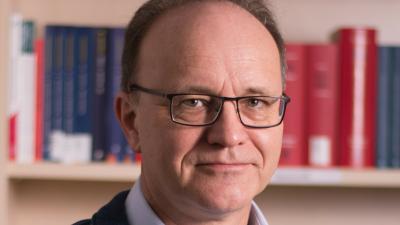

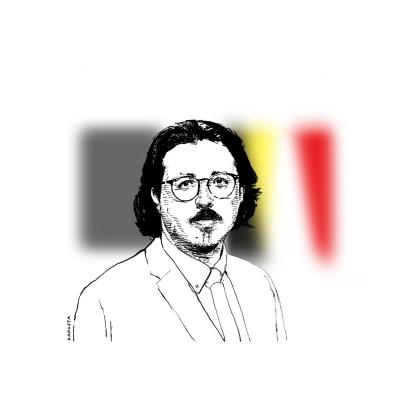
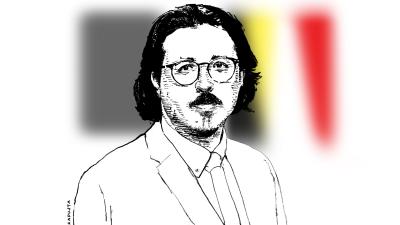

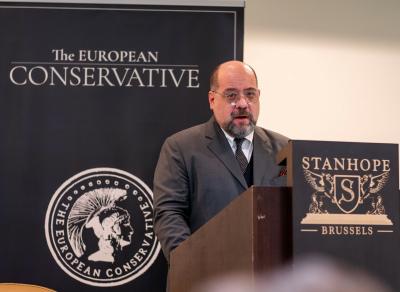

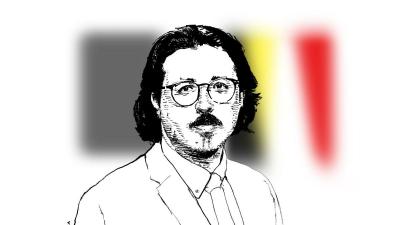

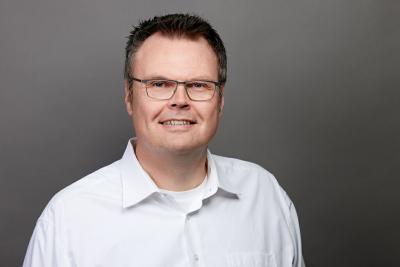

Comments (0)